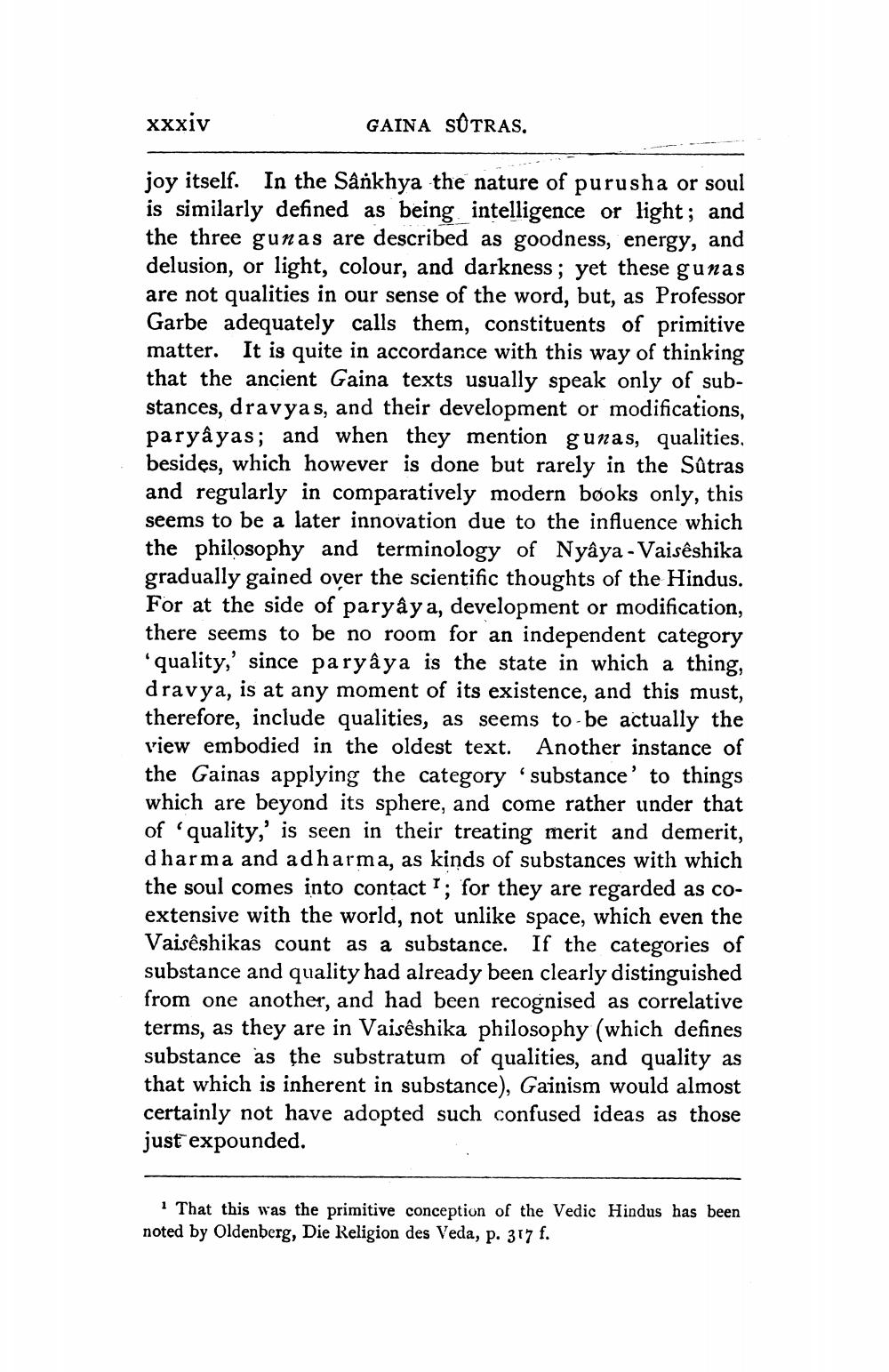________________
xxxiv
GAINA SÔTRAS.
joy itself. In the Sankhya the nature of purusha or soul is similarly defined as being intelligence or light; and the three gunas are described as goodness, energy, and delusion, or light, colour, and darkness; yet these gunas are not qualities in our sense of the word, but, as Professor Garbe adequately calls them, constituents of primitive matter. It is quite in accordance with this way of thinking that the ancient Gaina texts usually speak only of substances, dravyas, and their development or modifications, paryâyas; and when they mention gunas, qualities, besides, which however is done but rarely in the Sûtras and regularly in comparatively modern books only, this seems to be a later innovation due to the influence which the philosophy and terminology of Nyâya - Vaisêshika gradually gained over the scientific thoughts of the Hindus. For at the side of paryâya, development or modification, there seems to be no room for an independent category 'quality,' since paryâya is the state in which a thing, dravya, is at any moment of its existence, and this must, therefore, include qualities, as seems to be actually the view embodied in the oldest text. Another instance of the Gainas applying the category 'substance to things which are beyond its sphere, and come rather under that of 'quality,' is seen in their treating merit and demerit, dharma and adharma, as kinds of substances with which the soul comes into contact T; for they are regarded as coextensive with the world, not unlike space, which even the Vaisêshikas count as a substance. If the categories of substance and quality had already been clearly distinguished from one another, and had been recognised as correlative terms, as they are in Vaisêshika philosophy (which defines substance as the substratum of qualities, and quality as that which is inherent in substance), Gainism would almost certainly not have adopted such confused ideas as those just expounded.
· That this was the primitive conception of the Vedic Hindus has been noted by Oldenberg, Die Religion des Veda, p. 317 f.




